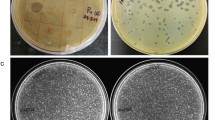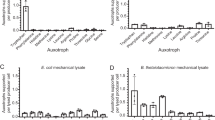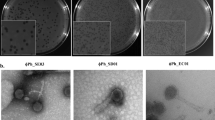Abstract
THE synthesis of the diethyl-ester of pyrocarbonic acid (DEP) was first reported by Boehm and Metha1 in 1938. Later, G. Hecht2 observed that this compound had a strong bactericidal effect. It is also known that DEP rapidly decomposes in water into toxicologically indifferent products; carbon dioxide and alcohol: 
This is a preview of subscription content, access via your institution
Access options
Subscribe to this journal
Receive 51 print issues and online access
$199.00 per year
only $3.90 per issue
Buy this article
- Purchase on Springer Link
- Instant access to full article PDF
Prices may be subject to local taxes which are calculated during checkout
Similar content being viewed by others
References
Boehm, T., and Metha, D., Ber. dtsch. chem. Ges., 71, 1797 (1938).
Hecht, G., Zeitschr. f. Lebensm. Unters. Forsch., 114, 242 (1961).
Farbenfabriken Bayer A.G. Baycovin zur Kaltentkeimung alcohol-freier Getränke, Ausgabe vom 1 Juli 1964.
Ivanovics, G., and Csiszár, K., Acta Microbiol. Acad. Sci. Hung., 9, 209 (1962).
Marmur, J., Methods in Enzymology, 6, 726 (1963).
Anagnostopoulus, C., and Spizizen, J., J. Eacteriol., 81, 741 (1961).
Author information
Authors and Affiliations
Rights and permissions
About this article
Cite this article
FEDORCSÁK, I., TURTÓCZKY, I. Effects of the Diethyl Ester of Pyrocarbonic Acid on Bacteriophage and Transforming DMA. Nature 209, 830–831 (1966). https://doi.org/10.1038/209830b0
Published:
Issue Date:
DOI: https://doi.org/10.1038/209830b0
Comments
By submitting a comment you agree to abide by our Terms and Community Guidelines. If you find something abusive or that does not comply with our terms or guidelines please flag it as inappropriate.



